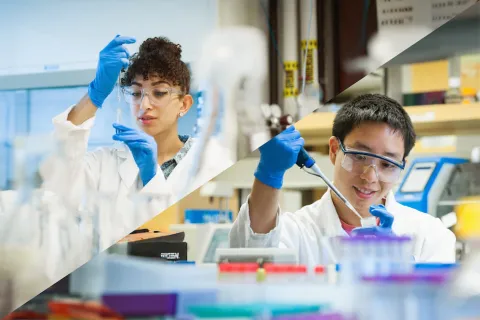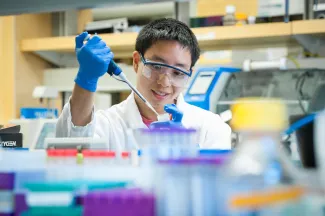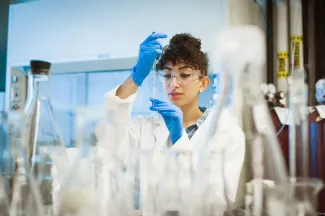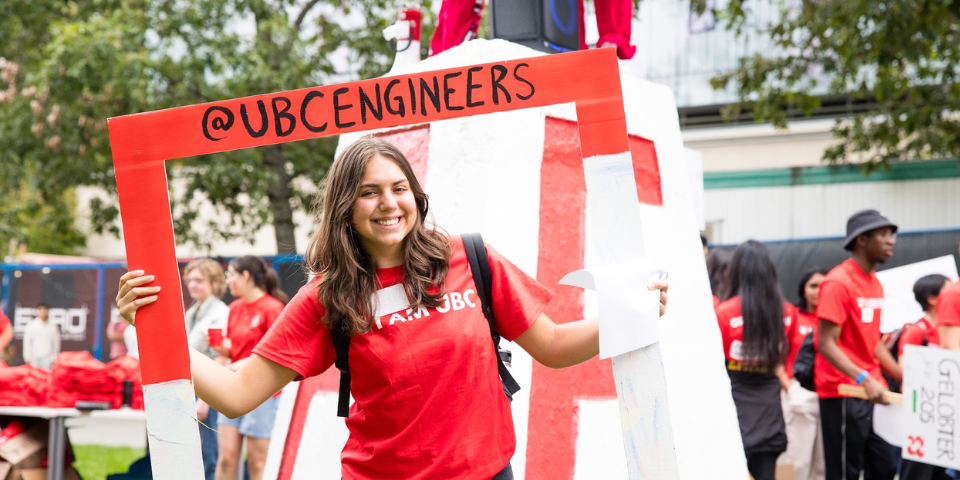"This is a people-centred profession: engineers who work in this area are addressing some of the most pressing challenges facing our world, from clean water supply and food production to minimizing the impacts of climate change."

If you want to make an impact, chemical and biological engineering (and the closely related chemical engineering), are two of the most exciting areas of engineering to study. That’s because engineers in this field are developing the processes and products that make our world better and improve our quality of life.
The clean water coming out of our tap, the cereal we eat for breakfast, the flexible glass on our smartphones, the electric batteries that power our vehicles, the flu vaccines we receive each year – these and other innovations could not exist without engineers who specialize in chemical and/or chemical and biological engineering.

chemical and biological engineering chemical engineering
Be a transformer
Engineers who work in this area are the ultimate transformers. They take raw materials and transform them into something else entirely, doing things like:
- Converting waste into new products, such as biofuels and biopharmaceuticals
- Recovering metals from e-waste so they can be used again in new products
- Engineering bacteria to create life-saving medicines
- Designing new materials with enhanced properties for applications from consumer products to medical devices

People sometimes refer to these kinds of engineers as process engineers or system engineers. That’s because a lot of their work involves creating and designing the processes that enable these transformations.
Where scientists might develop an idea for a new vaccine to protect against a particular disease, chemical and/or chemical and biological engineers will design, develop, build and operate the process required to make the millions of doses a year of that vaccine to make sure there is enough to protect everyone.
Work at the forefront of new technologies
This is also a field that’s constantly evolving with new technologies like AI, nanotechnology and bioinformatics all contributing to incredible new developments and opportunities.
For example, as a chemical and biological engineer you could be in charge of developing control strategies to manage the robots that seed, operate and harvest produce grown in vertical farms.
You’ll be pulling together and applying knowledge from many different fields to make this system work!

Interested?
At UBC we offer two programs: Chemical Engineering, and Chemical and Biological Engineering.
Both programs will allow you work in any of the fields or projects listed above, with the difference being that in chemical engineering, you’ll specialize a bit more on the tools offered by physical chemistry and process control, and in chemical and biological engineering you’ll focus on the unique tools offered by biology and genetic engineering.
Learn more about these two related fields:
- Learn more about chemical and biological engineering
- Learn more about chemical engineering
- Check out some interesting videos where current and past chemical and biological engineering students talk about what makes this such a great choice of study
- Read some of our articles to dive deeper: Biological engineering vs biomedical engineering, chemical engineering vs chemistry, and an article on how chemical engineers are among the highest paid of all engineers

















